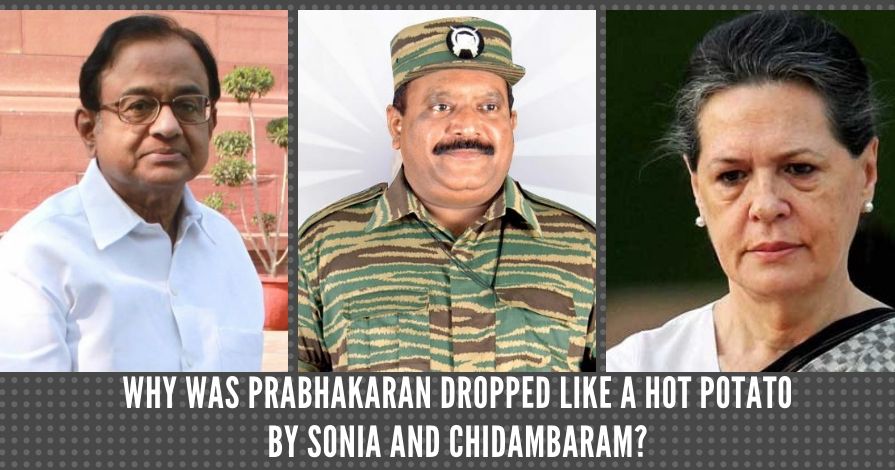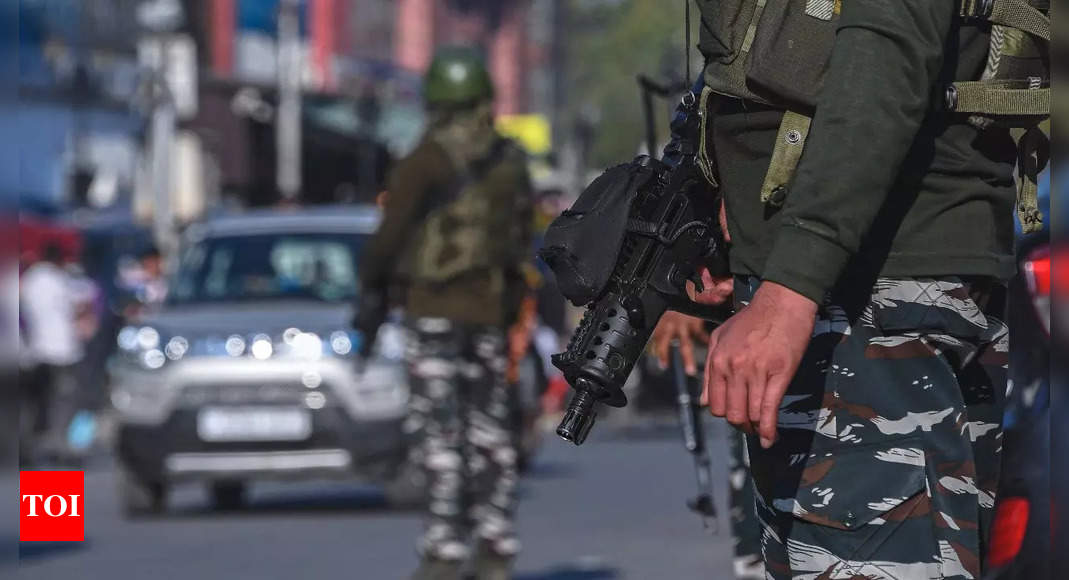The International Department of the Central Committee of the Chinese Communist Party (ILD-CPC) is one of the most important, but least well understood, organs o

goachronicle.com
The International Department of the Central Committee of the Chinese Communist Party (ILD-CPC) is one of the most important, but least well understood, organs of China’s foreign affairs system. It is a relatively large and quite active organisation, operates worldwide (and throughout China) and performs a variety of important functions for the CCP and government. Yet it is a difficult institution to research and learn about, and many things that one would like to know about the ID are simply not knowable.
On August 7, 2008, Rahul Gandhi, General Secretary of the Indian National Congress (INC), and Wang Jiarui, Director, International Liaison Department of the Communist Party of China (CPC) signed a Memorandum of Understanding (MoU) in the presence of the President of INC Sonia Gandhi who was also the Chairperson of United Progressive Alliance (UPA) I at that time, President of China, Xi Jinping who was then the Vice-President of China and Congress leader Anand Sharma.
But is the International Liaison Department of CPC only a China foreign policy influencer or is it a covert intelligence agency of China.CCP’s International Department is an important and yet often overlooked unit of China’s power and influence under the CPC. While the department was positioned for diplomacy with other foreign communist parties, the ILD-CPC has reshaped itself over the past 20 years as a flexible and alternative channel to traditional state-to-state diplomacy with other foreign parties globally not only communist parties. The department’s core objective is to use party-to-party contacts to help safeguard the country’s interests and facilitate state-to-state relations.”
GoaChronicle.com accessed an email sent by BBC to Stratfor (Global Intelligence Agency) under the Email ID – 662942. Email subject titled: BBC Monitoring Alert – China. it reports the entire Xinhua interview of Sonia Gandhi on June 29, 2011. Sonia Gandhi explains the macro-nature of the MoU with ILD:
Here is the text report in English by the official Chinese news agency Xinhua (New China Agency) in the article titled ‘
Indian ruling party hopes to boost ties with China’s leaders’
Beijing, 29 June: The Indian National Congress (INC) party and the Communist Party of China should intensify their exchanges, especially at the level of the younger leadership of the two parties, INC leader Sonia Gandhi says.
“Such a dialogue should address all vital issues of mutual concern through visits, seminars and a productive exchange of ideas, skills and experiences,” Gandhi said in a recent written interview with Xinhua as the CPC celebrates the 90th anniversary of its founding on July 1.
Those areas could include infrastructure building, inclusive growth, employment generation, and environment protection, among other things, Gandhi said.”
Gandhi said. India and China have pursued different paradigms of development as they have different political systems, natural resources and endowments, Gandhi said.
Both countries have scored many achievements since independence and liberation respectively, but they also face challenges to greater development and prosperity, she said.
Both countries have the potential to learn from each other, she said. Sonia Gandhi visited China in 2007 and 2008 as INC chief.
She said that INC and CPC signed a Memorandum of Understanding during her visit to China in August 2008. One of the key components of that memorandum was a shared commitment to strengthen exchanges amongst the younger leadership in the two parties. More visits and exchanges, particularly among the youth wings of the two parties and between students of the two countries, are extremely important, she said. That’s to ensure that the generation of young leaders in China and India know and understand each other well, she said, thus deepening the relationship between the two parties, the two peoples and the two countries.
In a report in 2016
by the US-China Economic and Security Review Commission – Chapter 2 ‘US-China Security Relations there is brief attention drawn on International Liaison Department:
“Before the dissolution of the four general departments of the PLA, the International Liaison Department under the General Political Department of PLA was responsible for collecting foreign intelligence through networks of official and unofficial agents abroad. ILD agents used informal contacts with foreign actors to identify and investigate individuals and organizations to collect intelligence and expand China’s influence abroad.”
Five years earlier in its 2011 report US-China Economic and Security Review Commission opined that the International Liaison Department conducts ints perception management operations in accordance with centrally determined (China Communist Party) propaganda messages.
Furthermore, in 2009, the office of the Director of the National Intelligence identified the Chinese Liaison Office (International Liaison Department as a ‘major collector’ of intelligence against U.S. interests.
A Secret Central Intelligence Agency (CIA) Document in possession of
GoaChronicle.com titled ‘Intelligence Report – The International Liaison Department of the Chinese Communist Party’ released in 2007 by the US Government states: Organised geographically and working hand-in-hand with Chinese embassies in various countries, the ILD performed the task of finding, investigating and eventually supporting pro Chinese groups. ILD pursued a patient, soft-sell policy providing funds to keep the promising groups active and offering political and organizational training.
ILD of the CPC was a relatively obscure and clandestine brand of the party but today in its present status as an open, active participant in the implementation of Chinese foreign policy.
“The Secret CIA Report shockingly reveals that ILD although a Party Department although a party department, was off status comparable to numerous branches of the State Council (Government). Its primary responsibility was to maintain contacts with friendly Communist Parties in Communist-ruled countries and to find, nurture and develop pro-Chinese sentiment wherever it was found. In this capacity, it often worked hand-in-glove with overseas MFA personnel in the embassies. At the same time. it is clear from the available evidence that the MFA and ILD kept their functions carefully separated. ILD personnel were of a “higher status” and better paid than were those of government bodies because the ILD was a Party organization.
Wikileaks document from the ‘The Global Intelligence Files’ that contains Stratfor Global Intelligence email of an ‘Intel-Services China Report of 2010’ documented as 133464 Intel Services China, that report states:
“Two organizations have historically been involved in covert action, a strategy that China has come to avoid. One is the International Liaison Department, which is controlled by the PLA’s General Political Department. Responsible for establishing and maintaining liaisons with communist groups worldwide, the liaison department used such links to foment rebellions and arm communist factions around the world during the Cold War. More recently it has used this network for spying rather than covert action. “
Here is a candid view of the International Liaison Department of CPC intelligence role which was provided in the
Czech Intelligence Service BIS’s 2015 Annual Report -a copy of which is in possession of
GoaChronicle.com:
 “In 2015, the dominant Chinese intelligence force in the Czech Republic was military intelligence, whose activities supplemented the efforts of a specific Chinese intelligence organization, the International Liaison Department of the Chinese Communist Party. This is an agency under the Central Committee of the CCP, whose remit includes, besides foreign relations, intelligence activities.
“In 2015, the dominant Chinese intelligence force in the Czech Republic was military intelligence, whose activities supplemented the efforts of a specific Chinese intelligence organization, the International Liaison Department of the Chinese Communist Party. This is an agency under the Central Committee of the CCP, whose remit includes, besides foreign relations, intelligence activities.
In 2013, India’s current National Security Advisor, Ajit Doval had written a paper titled, “Chinese Intelligence: From Party Outfits to Cyber Warriors’.
The paper concluded that the People’s Liberation Army (PLA) over the years, has upgraded its intelligence capabilities at tactical, technological, and strategical levels, particularly in the Asia Pacific region, South Asia and Central Asia. The Ministry of State Security’s (MSS) has evolved itself as the premier foreign intelligence agency besides diplomatic intelligence, it has been aggressively hunting for technological data and systems information to augment national economic and military capabilities. It continues to bank heavily on the Chinese global diaspora that provides it a vast catchment area for human assets for intelligence gathering and espionage. To widen its catchment area, it is expanding its illegal cover for intelligence gathering by using commercial companies and business houses, media agencies, Chinese banks, etc. The establishment of nearly 380 Confucius Institutes in 180 countries, Chinese language institutes, etc. also is part of its foreign intelligence activities. China envisions for itself a big power role and, silently but steadily, is building up its intelligence capabilities commensurate to that vision.”
In order to understand China’s penetration in India. It is important to go back to the focus on the CPC and Indian National Congress Memorandum of Understanding (MoU) as an example of the strategic work of the ILD to infiltrate political parties and then policies through political parties, media houses, businesses, and investments in infrastructure and technology.
On January 6, the media had reported that 150 comrades gathered at a five-star hotel in New Delhi to listen to a detailed presentation by Meng Xiangfeng, a central committee member of the Chinese Communist Party (CPC) and confidante of President Xi Jinping.
CPI(M) general secretary Sitaram Yechury, CPI national secretary D Raja, and Chinese ambassador to India Luo Zhaohui where on the dais, when Meng gave a detailed presentation about the 19th party congress of the CPC held in October 2017.
The CPC delegation’s visit, facilitated by the government, was focused on building a narrative that bilateral ties are not only about disputes such as the tussle at the India-China-Bhutan-tri junction in Doklam or incidents of border incursions. The deliberations, said a leader present at the meeting, were centred around bilateral ties and friendly relations, apart from, of course, the outcome of the CPC party Congress and the future of Communism.
The CPC has close ties with all Indian parties, and the Left parties have more ideological proximity with them. But China’s seriousness about expanding its ties with Indian political parties, including the Left parties, was evident from the scale of the meeting attended by representatives of the Indian Left parties. Traditionally, such meetings used to happen in party offices. The meeting venue this time was chosen by the Chinese embassy in New Delhi.
Reportedly, the visit was part of an exchange programme between the International Liaison Department of the Communist Party of China (ILD-CPC) and the ministry of external affairs.The delegation also met the then Congress president Rahul Gandhi.
Even the then Minister of State for External Affairs V K Singh met with a delegation of the International Liaison Department of the CPC on a visit under the MEA-IDCPC Exchange Programme in 2018.
In a research paper titled
‘China’s “Quiet Diplomacy”: The International Department of the Chinese Communist Party’ written by David Shambaugh
Over the past eight decades of the ID’s existence, it has performed a mixture of positive and negative roles. On the negative side, it has sought to subvert foreign governments and has smuggled weapons to insurgent groups. It has been a missionary of revolution, a propaganda agent, an intelligence collector, and a supporter of brutal regimes such as the Khmer Rouge. More positively and more recently, however, the ID has served as an alternative diplomatic channel and secret envoy in sensitive negotiations with North Korea (and possibly Iran), a vehicle to learn from abroad to aid China’s modernization, a conduit to introduce foreign officials and experts to China and as a means to build ties with foreign societies and political parties. Like many other aspects of Chinese diplomacy, the ID has morphed from a disruptive and revolutionary institution into one that promotes reform at home and the status quo abroad. The ID operates relatively quietly and its activities are not reported in foreign media or analyzed by scholars of Chinese foreign policy.
The CCP’s International Liaison Department (ILD), manages the Party’s relations with foreign political parties, international political organizations, and overseas political elites. The ILD maintains ties with over 600 such groups from 160-plus countries and has enjoyed a markedly higher profile under Xi Jinping’s advocacy of a “new type of political party relations”.
According to
Song Tao, the ILD’s director since November 2015, through “exchanges and cooperation with foreign political parties” the agency
“can influence the other side’s attitudes and policies toward China, and make the other side understand, respect, and approve our values and policies.”
Last year, Hou Yanqi, China’s ambassador in Kathmandu, has spent the last three months playing peacemaker to feuding members of the ruling Nepal Communist Party (NCP). Relations between the communist parties were cemented with an agreement in September 2019 between the Chinese Communist Party (CCP) and the NCP.

It was signed by Madhav Kumar Nepal, chief of the NCP’s international relations department, and his Chinese counterpart, Song Tao, head of the CCP’s international liaison department.
In fact, the current ruling party of Pakistan, Pakistan Tehreek-i-Insaf (Pakistan Justice Party), has also signed a memorandum of understanding (MoU) with the Communist Party of China, to help strengthen party-to-party relations in 2018.

During the event held at Pakistan’s Ministry of Foreign Affairs, the Foreign Minister of Pakistan Shah Mehmood Qureshi and Song Tao, head of the International Liaison Department of the Communist Party of China Central Committee, signed the MoU. Song said at the signing that party-to-party relations would help to further promote the economic, social, and cultural ties between the two countries.
India must beware of China’s International Liasion Department.
In January 2011, before Xi Jinping became General Secretary of the CCP, he spoke at a meeting dedicated to the 90th anniversary of foreign affairs work (as old as the CCP) and the 60th anniversary of the ILD, saying that the latter was established to be responsible for the CCP’s relations with foreign parties. Xi stressed that the party’s foreign affairs work had an important role in total diplomacy as it allowed the party to build a positive image on the international stage, gather information, and support the central authorities in decision-making.
Today, the ILD is interested not in exporting the communist revolution but in establishing contacts with foreign political elites who will support the CCP’s policies in their countries and help create an international consensus on issues important to China.
ILD-CPC strategy working with political parties. Second is contacts in a country, it is responsible for developing people-to-people relations and creating a network of contacts for China’s healthy and stable external relations. The third is research on the country and its socio, economic and political concerns. The aim is to supply China with information on international relations and regional developments, party politics, and changes in societies. According to ILD, researching and monitoring international developments will allow China to take the initiative on issues that are important to it in order to propose a “China Solution’. ILD focuses on informal exchanges with China-minded governing and opposition parties, political organisations, think-tanks, the media, NGOs in order to consistently cultivate people who know China and are friendly to the Chinese, with the aim of finding a common language and mutual understanding.
Intelligence reports indicate that the ILD has been in regular contact with Indian political parties in particular Congress and CPI (M) in order to influence local developments. Indian politicians should be aware of the CCP’s goals in establishing foreign contacts if they want to protect society from external influence, adhere to the requirement of transparency, and avoid being caught in the CCP’s grip.
In 2021, reportedly Intelligence inputs indicate that around 40,000 Indians are in contact with the International Liasion Department (ILD) of the Communist Party of China (CPC). These individuals are politicians, journalists, and business leaders.

 before hand.
before hand.













